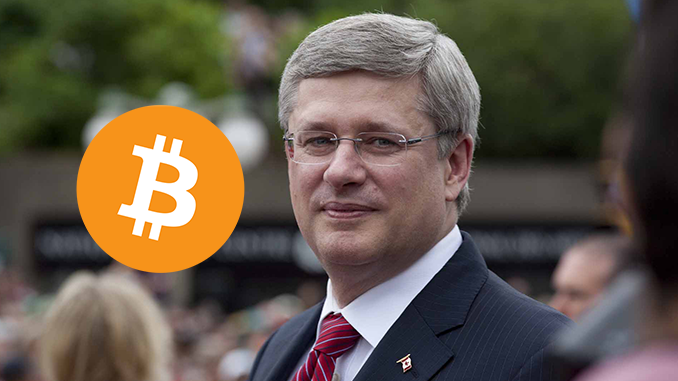
The US dollar must fear for its role as international reserve currency, says former Canadian Prime Minister Stephen Harper. He names the euro, yuan and bitcoin as possible reserve currencies.
The discussion about whether the U.S. dollar can still hold its own as the undisputed international reserve currency in the medium term has a new prominent contender in the person of Canada’s former Prime Minister Stephen Harper. The politician, known as an economic conservative, said the U.S. dollar is in a downtrend. But with the euro, yuan and bitcoin, he said alternatives are available as reserve currencies. Harper, who led the G-7 nation of Canada for ten years, made his comments at an investor conference. Harper is not alone in his thoughts on the possible changing of the guard of the U.S. dollar. Most recently, for example, Morgan Stanley’s chief strategist, Ruchir Sharma, formulated similar theses in a highly regarded editorial for the Financial Times.
Digital currencies on the rise – Canada’s Stephen Harper differentiates
Harper studied economics before his career and now stresses that the U.S. dollar, however, will retain a special role despite all the prophecies of doom as long as the U.S. does not turn into a “disaster.” The Chinese yuan suffers from “arbitrary” influences of the leadership in Beijing, and in the case of the euro, the long-lasting uncertainty about its true value is an obstacle to greater ambitions. But Harper also sees more and more people losing confidence in the U.S. dollar and looking for stores of value. That’s when gold and bitcoin come in handy, Harper says. Currencies need to serve three functions, he says: object of exchange, unit of account and store of value. Digital currencies could serve as a means of payment and a unit of account, but he doubts how Bitcoin would function as a store of value.
Based on these thoughts, Harper also commented on plans by central banks around the world to introduce government-backed digital currencies (CBDCs). As long as, say, an e-euro or e-yuan continues to have its primary role through the central bank of controlling inflation and ensuring price stability, CBDCs are probably inevitable, he said. But if there is a tendency toward “wild experimentation” and central banks change their role, there is a danger of government CBDCs, he said. He is concerned about reports that central banks with responsibility for a CBDC are moving toward becoming a kind of “normal bank,” losing the role of “financial monitor.”
Conclusion: Canada’s Interjection on Uncertainty about Global Reserve Currency
The “elder statesman” Harper (61) was known to be rather hostile to crypto in his role as Prime Minister for a little less than a decade. In that respect, the change of opinion is noteworthy and is getting a lot of attention in North American media. But his remarks leave a lot of wiggle room in terms of larger roles for Bitcoin; time and again, his deep-seated belief in the U.S. dollar shines through. But Harper can now be sure of being quoted whenever optimists trust Bitcoin to take on a leading role in the globalized world.
Best place to buy Bitcoin:

Leave a Reply